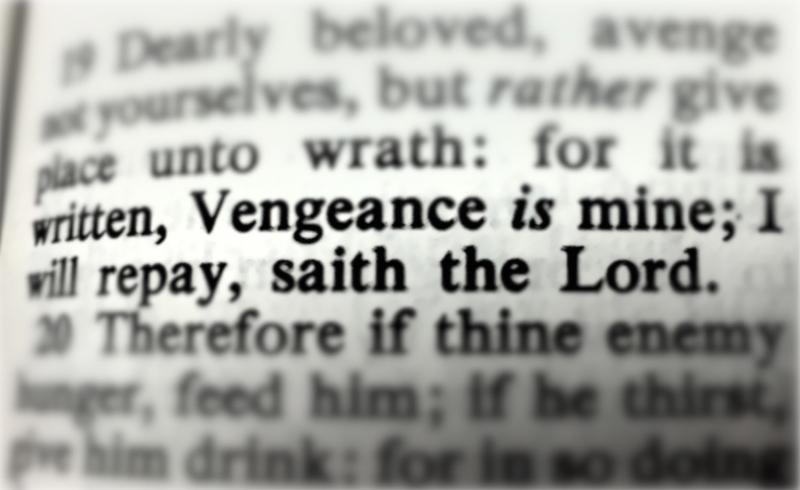
Complimentary Story
Does ‘an eye for an eye’ justify our personal vengeance against someone? Is that actually what our Creator means? Think about how our criminal justice system would be today if we based it on the literal interpretation of the “eye for eye” verses found in the pages of the Old Testament law. There are only four places in the King James Bible where the phrase “eye for eye” is mentioned: Exodus 21:24, Leviticus 24:20, Deuteronomy 19:21 and Matthew 5:38. The first mention of the “eye for eye concept” is found in Exodus 21 where it tells of compensation that a pregnant woman was entitled to if she accidently lost her baby due to a conflict or fight. If the incident did not harm the woman and only the baby then the men would have to pay her an amount determined by her husband and Israel’s judges. If both the unborn child and the mother are injured, then the “eye for eye” justice prevails. But don’t get the idea that this principle of an “eye for eye” system of justice was meant to be used by individuals on their own authority. These verses were direction as to how the nation or governments were to administer justice for its people. If individuals were intended to dish out judgment on their own, things could quickly turn into mob justice. Remember the “lynchings” portrayed on the old Westerns. The Bible prohibits people from taking personal vengeance on others as found in Psalm 94:1, “O Lord God, to whom vengeance belongeth; O God, to whom vengeance belongeth, shew thyself.”Earthly punishment is the responsibility of government authorities to carry out penalties for criminal acts. God’s law, in this case, applies to the nations as they rule over the people. People wonder what Jesus meant in the Sermon on the Mount where he stated, “You have heard that it was said, ‘An eye for an eye, and a tooth for a tooth.’ But now I tell you: do not take revenge on someone who wrongs you.” (Matthew 5:38-39). So then is Jesus teaching us that the government of a nation had no right to punish evil? The Apostle Paul explained this in his letter to the Romans that Earthly authorities have the right and responsibility to retaliate against evil as in Romans 13:1, 3-4. Paul also stated Christ’s words that we should not avenge ourselves as seen in Romans 12:17-19. “Do not repay anyone evil for evil. Be careful to do what is right in the eyes of everyone........If it is possible, as far as it depends on you, live at peace with everyone......Do not take revenge, my dear friends, but leave room for God’s wrath, for it is written: ‘It is mine to avenge; I will repay,’ says the LORD.”
The ultimate Biblical meaning of “eye for eye” is clear. God will repay those who do wrong using the same principle of fairness expressed in His law as in Colossians 3:25, “Anyone who does wrong will be repaid for their wrongs, and there is no favoritism.” For governments to administer fair and just punishment they should follow God’s principles. But our personal lives are another category as we should not seek vengeance or seek to repay someone in the same way or magnitude they harmed us.. Instead we are to live as it states in Romans 12:21, “Be not overcome of evil, but overcome evil with good."
As it says in Romans 12:19, “Dearly beloved, avenge not yourselves, but rather give place unto wrath: for it is written, ‘Vengeance is mine; I will repay, saith the Lord.’”



